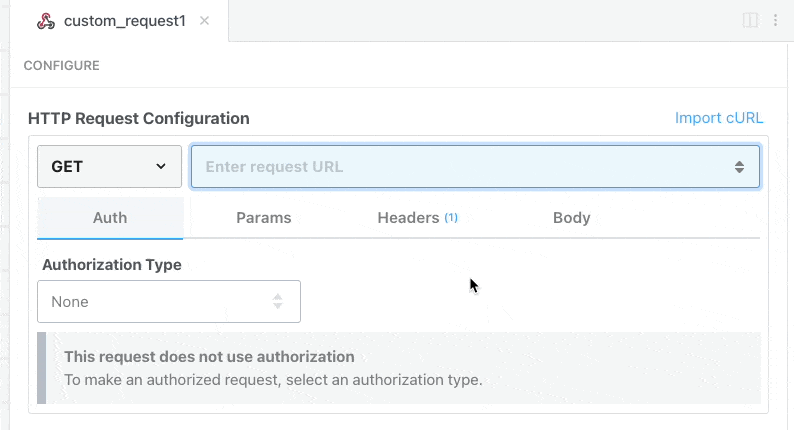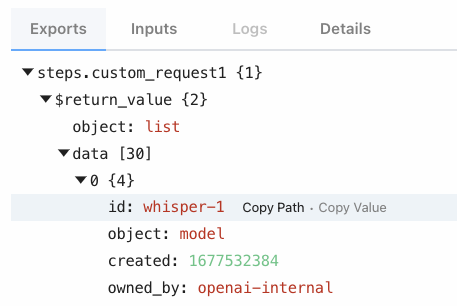What do you want to automate
with HTTP / Webhook and Data Stores?
Prompt, edit and deploy AI agents that connect to HTTP / Webhook, Data Stores and 3,000+ other apps in seconds.
Trusted by 1,000,000+ developers from startups to Fortune 500 companies
Popular Ways to Connect HTTP / Webhook with Data Stores#
Popular HTTP / Webhook and Data Stores Triggers#
Get a URL and emit the full HTTP event on every request (including headers and query parameters). You can also configure the HTTP response code, body, and more.
Get a URL and emit the HTTP body as an event on every request
Emit new event when the content of the URL changes.
Popular HTTP / Webhook and Data Stores Actions#
Add or update a single record in your Pipedream Data Store
Add or update multiple records to your Pipedream Data Store
Send an HTTP request using any method and URL. Optionally configure query string parameters, headers, and basic auth.
Append to a record in your data store Pipedream Data Store. If the record does not exist, a new record will be created in an array format.
Send an HTTP GET request to any URL. Optionally configure query string parameters, headers and basic auth.
Overview of HTTP / Webhook#
Build, test, and send HTTP requests without code using your Pipedream workflows. The HTTP / Webhook action is a tool to build HTTP requests with a Postman-like graphical interface.

Point and click HTTP requests
Define the target URL, HTTP verb, headers, query parameters, and payload body without writing custom code.

Focus on integrating, not authenticating
This action can also use your connected accounts with third-party APIs. Selecting an integrated app will automatically update the request’s headers to authenticate with the app properly, and even inject your token dynamically.

Pipedream integrates with thousands of APIs, but if you can’t find a Pipedream integration simply use Environment Variables in your request headers to authenticate with.
Compatible with no code actions or Node.js and Python
The HTTP/Webhook action exports HTTP response data for use in subsequent workflow steps, enabling easy data transformation, further API calls, database storage, and more.
Response data is available for both coded (Node.js, Python) and no-code steps within your workflow.

Connect HTTP / Webhook#
// To use any npm package on Pipedream, just import it
import axios from "axios"
export default defineComponent({
async run({ steps, $ }) {
const { data } = await axios({
method: "GET",
url: "https://pokeapi.co/api/v2/pokemon/charizard",
})
return data.species
},
})
Overview of Data Stores#
Data Stores are a key-value store that allow you to persist state and share data across workflows. You can perform CRUD operations, enabling dynamic data management within your serverless architecture. Use it to save results from API calls, user inputs, or interim data; then read, update, or enrich this data in subsequent steps or workflows. Data Stores simplify stateful logic and cross-workflow communication, making them ideal for tracking process statuses, aggregating metrics, or serving as a simple configuration store.
Connect Data Stores#
export default defineComponent({
props: {
myDataStore: {
type: "data_store",
},
},
async run({ steps, $ }) {
await this.myDataStore.set("key_here","Any serializable JSON as the value")
return await this.myDataStore.get("key_here")
},
})Community Posts#

